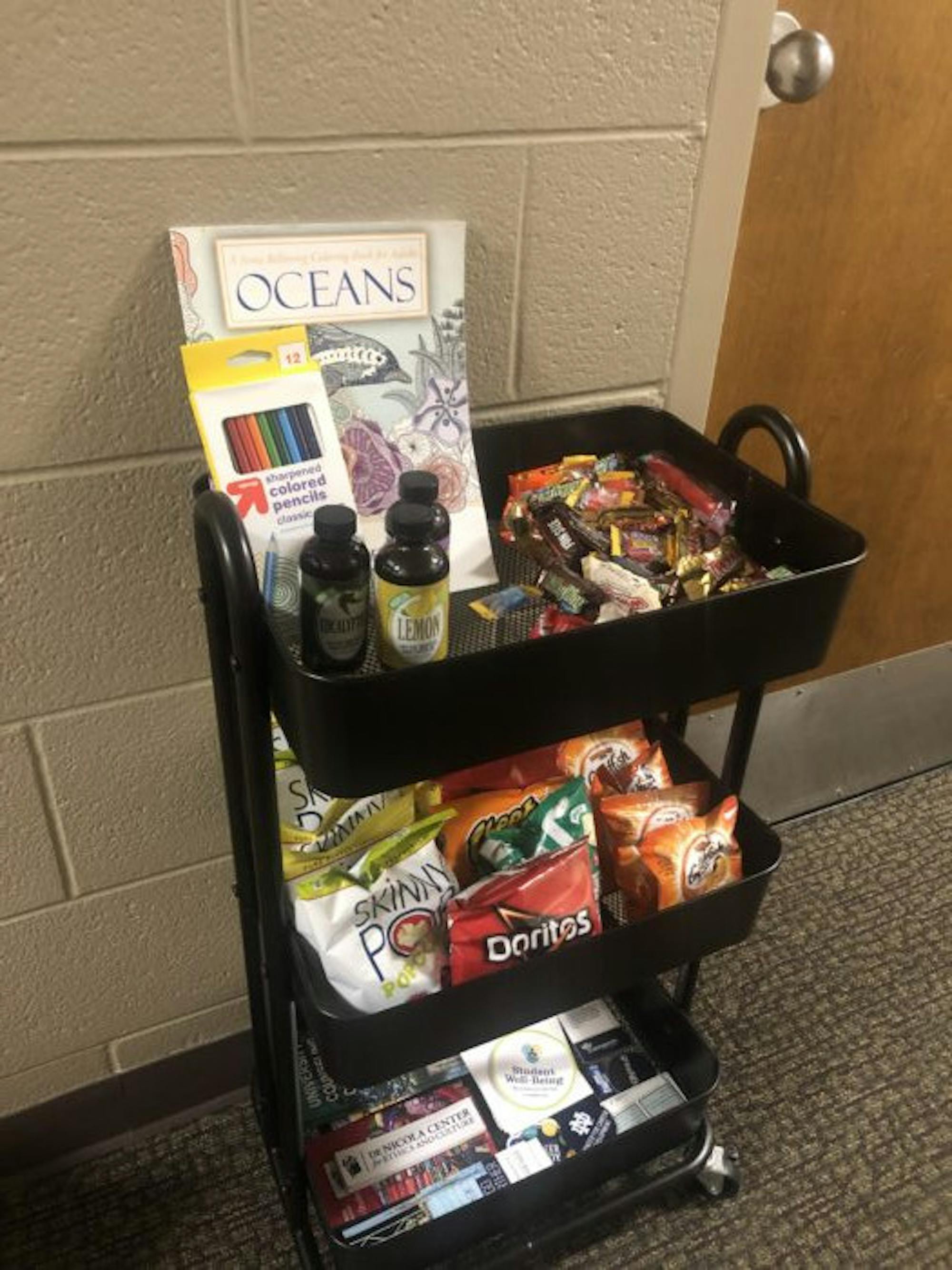The process of securing funds from Lilly Endowment Inc. started a year before pilot communities appeared in selected dorms during the spring 2021 semester.
Christine Caron Gebhardt, associate vice president for student services, said she began developing a grant proposal in January 2020 before the COVID-19 pandemic struck campus.
Before she started working on the project, the Lilly Endowment asked University President Rev. John Jenkins to think about big issues that universities and their student populations face today.
“The Lilly [Endowment] had reached out to Father Jenkins and other presidents across Indiana and across the nation and said, ‘So what keeps you up at night?’” Gebhardt said. “[He thought], ’We are seeing a rise in students’ needs related to their mental health. What are the ways that we can not only intervene and on those crisis situations, but actually how can we support students, all along the way?’”
Gebhardt said she was asked to help put the grant into action by gathering a working group with input from residential life and student health and wellness.
“We decided that we wanted to look at how to help students build resiliency. How do we help them develop those skills or strengthen the skills to promote their health every day, but also when they faced challenges?” Gebhardt said the group asked.
The group settled on five key strategies: building a culture of wellness, early intervention, post-intervention, responder mental health and sustainability.
After building the program for an entire year, Gebhardt and her team launched it spring 2021 in six dorms chosen to be pilot communities: Cavanaugh Hall, Keough Hall, Knott Hall, Pasquerilla West Hall, Walsh Hall and Carroll Hall. Gebhardt said the dorms were chosen to represent a variety of different sized community, an equal number of men’s and women’s halls and halls with a rector with more than a year of experience in the position.
Emily Orsini, rector of Pasquerilla West Hall worked on the implementation team with Gebhardt.
Orsini said she is very excited for campus to get to know the programs they worked on and to bring about a new culture of mental health awareness.
Pasquerilla West Hall’s Resident Assistants (RAs) started small last spring by using the Lilly grant funds to introduce some small self-care programs, but Orsini is hopeful that her RAs will become more creative this semester.
“I think there’s a lot of really good opportunities for my RAs to be creative because this is new, and so they have a baseline of ideas, but now they can really build those. So, I’m excited to kind of see what my RAs this year will build from what they learned from training,” Orsini said.
One of the projects that Pasquerilla West Hall has implemented are small wellness carts outside of each RA’s door, Orsini explained.
“We do wellness cards in every section of just tea and literally coloring books and things like that, just for something that’s not super active but super available,” Orsini said.
She added that hall staff can utilize “mini-grants” to help them with their own self-care. They are allowed to use funds to do relaxing activities, such as getting their nails done, going out to eat or getting a massage. Orsini said this is one particularly important part of the entire program.
“[The other schools] had really great programs for this, that and everything, but this idea of taking care of hall staff, or, you know, first responders, is something that a lot of schools are like, ‘Yeah if you figure this out, let us know.’” Orsini explained. “As a responder, you want to help, help, help, but how are you taking that after the fact, like taking care of yourself.”
Following the first pilot communities, the program has expanded to include more dorms: Alumni Hall, Breen-Phillips Hall, Duncan Hall, Flaherty Hall, Howard Hall, Johnson Family Hall, Lyons Hall, McGlinn Hall, Morrissey Manor, O'Neill Hall, St. Edward Hall, Sorin College and Welsh Family Hall.
Gebhardt said that the program’s five-year plan includes an expansion to include all dorms by the spring 2022 semester. Her group also plans to make the program widely available to other campus groups and other universities if it proves successful.
Gebhardt said that she thinks the daily wellness awareness that the program promotes can impact everyone on campus.
“We don’t always have to react. We can actually promote wellness as a day-to-day activity,” she explained. “I’m really excited about that piece because I think that’s something every person on our campus can use.”
Editor's Note: A previous version of this article incorrectly identified the Lilly Endowment as the Lilly Foundation. The Observer regrets this error.
University utilizes grant to promote mental health
A wellness cart next to each RA's door is one way the Lilly Endowment grant was put into action in Pasquerilla West Hall.









